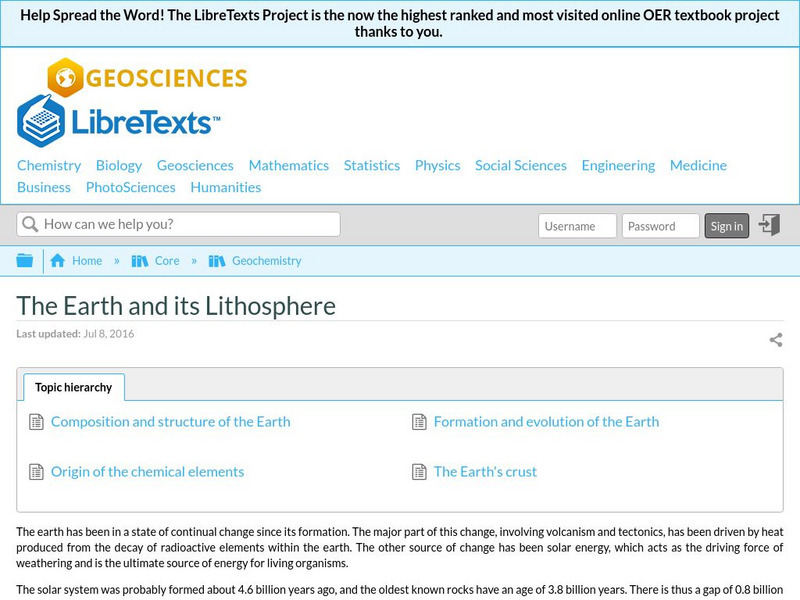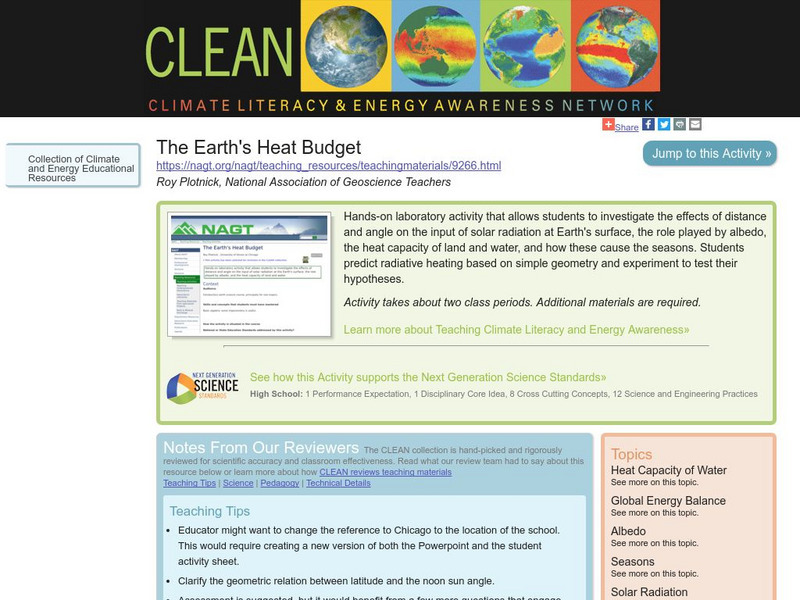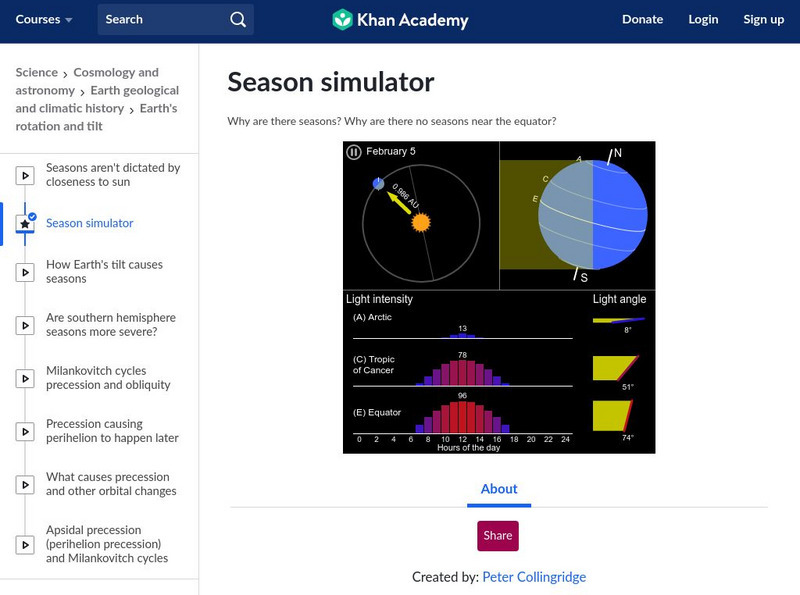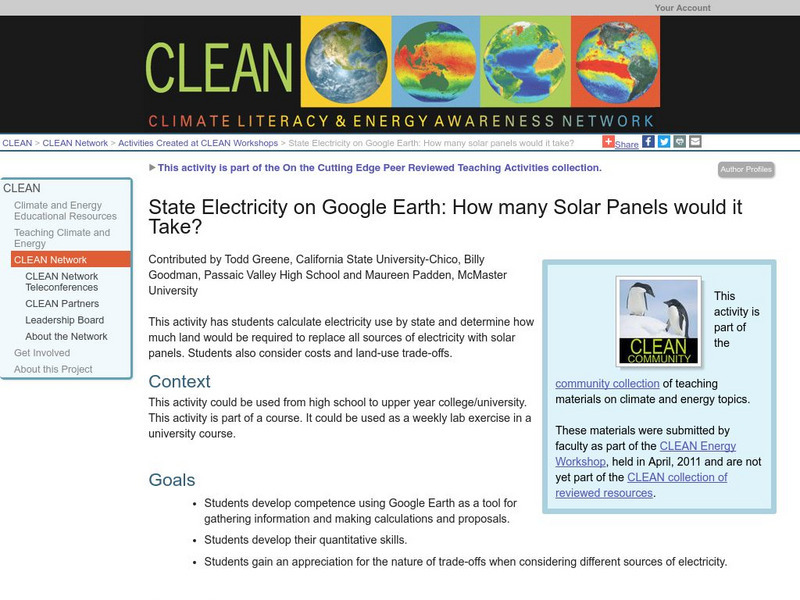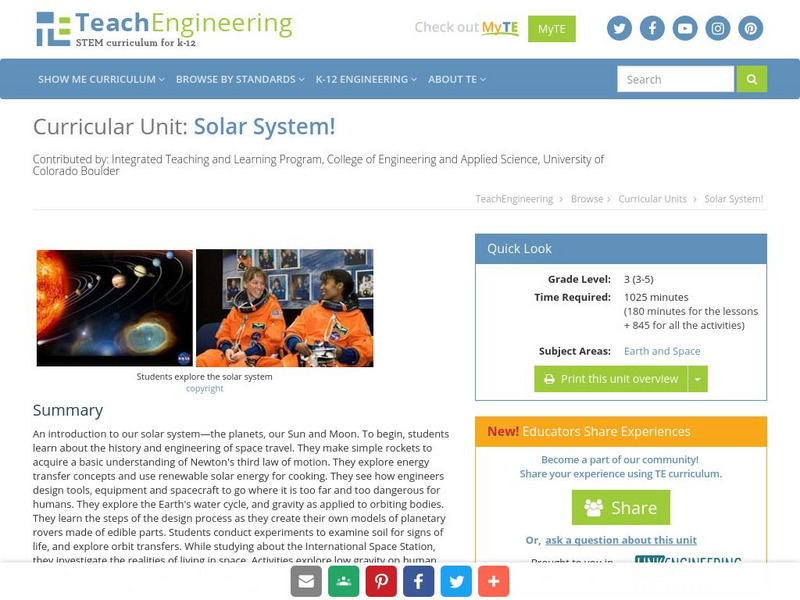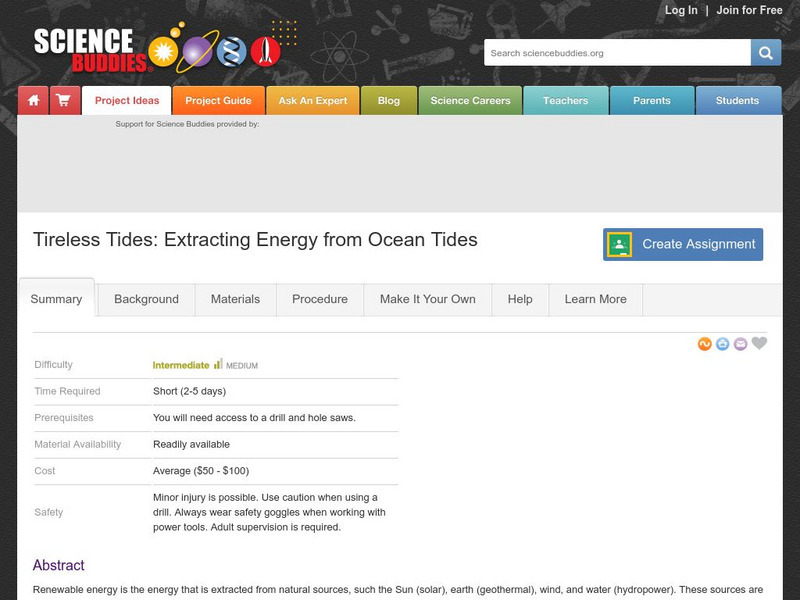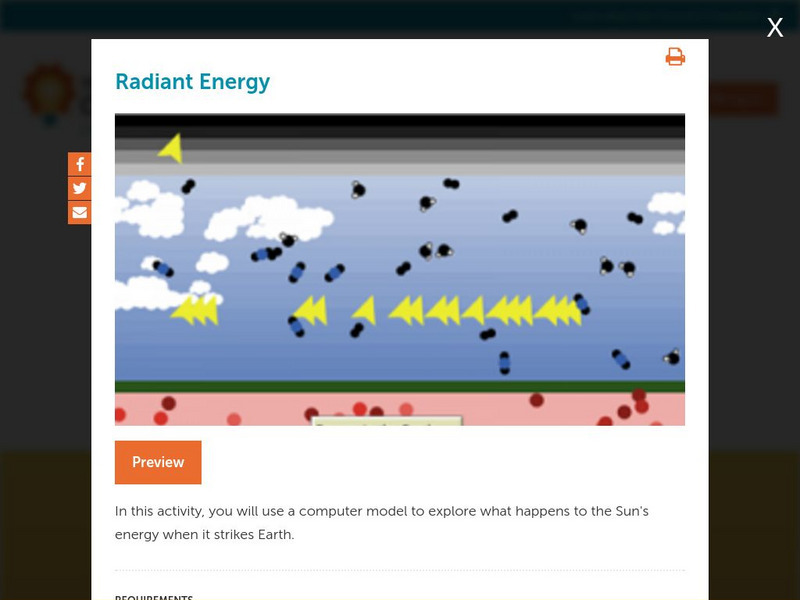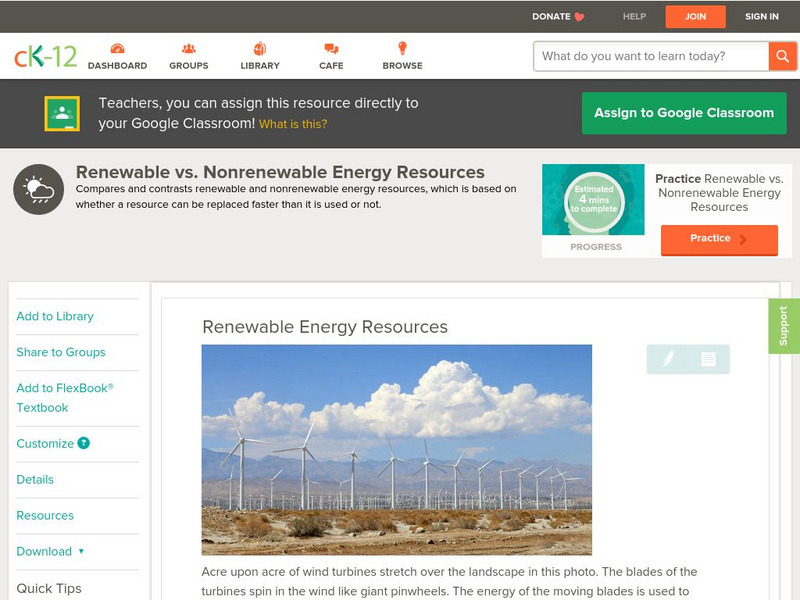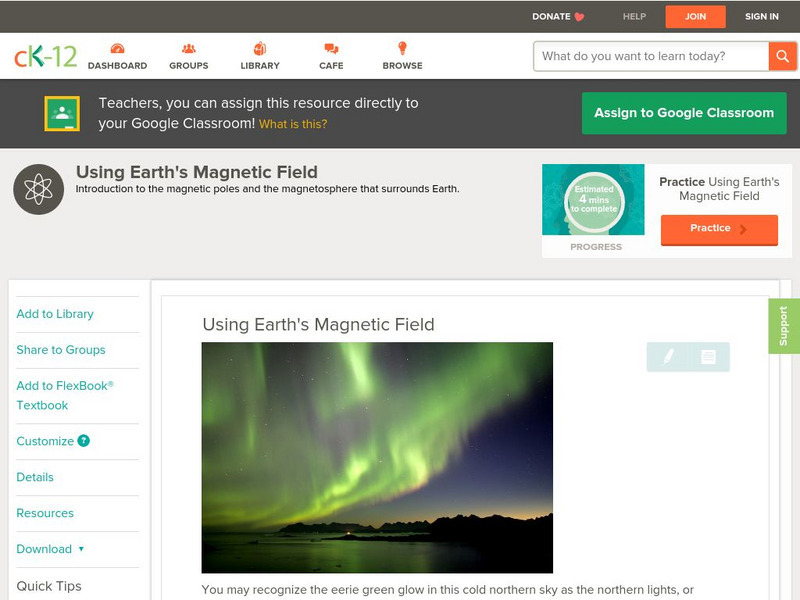Hi, what do you want to do?
Oklahoma Mesonet
Oklahoma Climatological Survey: Earth's Energy Budget
This 2-part resource details how the Earth absorbs just enough energy from the Sun to sustain life. Content explores incoming solar radiation and outgoing terrestrial radiation.
Libre Text
Libre Texts: Geochemistry: The Earth and Its Lithosphere
The Earth has been in a state of continual change since its formation. The major part of this change, involving volcanism and tectonics, has been driven by heat produced from the decay of radioactive elements within the Earth. The other...
Climate Literacy
Clean: The Earth's Heat Budget
Students investigate the effects of distance and angle on the input of solar radiation at the Earth's surface, the role played by albedo, and the heat capacity of land and water.
Science Education Resource Center at Carleton College
Serc: Lab 7: A Year in the Life of the Earth System
An investigation that is part of a series of lab lessons that expose students to Earth Systems through research, data, and visualizations. In this lab, students will observe how the Earth has changed over time to understand the Earth as...
Khan Academy
Khan Academy: Cosmology and Astronomy: Season Simulator
This season simulator takes Earth through an entire year cycle allowing the viewer to observe the tilt of the Earth and the intensity of the sunlight.
Globe
The Globe Program: Earth System Module
Activities help students experiment with what plants need in terms of water, sunlight, and soil, explain how the Earth's processes and components are interconnected, and demonstrate their knowledge of how water, air, soil, and living...
National Geographic
National Geographic: Interactions Within Earth's Atmospheres
Using computational models, students investigate the interaction between greenhouse gases, solar radiation, and the Earth's surface for the impact on climate. They then look at data on atmospheric carbon dioxide to analyze changes in...
Climate Literacy
Clean: State Electricity on Google Earth: How Many Solar Panels Would It Take?
This activity addresses the Energy Awareness Principle by having students calculate electricity use by state, and also determine how much land would be required to replace all sources of electricity with solar panels considering costs...
Science Education Resource Center at Carleton College
Serc: Lab 3: Discovering Local Data
An investigation that is part of a series of lab lessons that expose learners to Earth Systems through research, data, and visulazations. This lab specifically has students using a database to gather and graph data to understand the role...
Howard Hughes Medical Institute
Hhmi: Bio Interactive: Paleoclimate: A History of Change
Learn about the history of Earth's climate in this Click and Learn. Learn how many factor control Earth's climate. Specifically, examine two of the most important factors: solar radiation and the composition of Earth's atmosphere.
TeachEngineering
Teach Engineering: Solar System!
An introduction to our solar system: the planets, our Sun and our Moon. Students begin by learning the history and engineering of space travel. They make simple rockets to acquire a basic understanding Newton's third law of motion. They...
Utah Education Network
Uen: Trb 3:5 Investigation 3 It's Hot
Activity helps to understand the effect of sunlight on the earth.
Science Buddies
Science Buddies: Tireless Tides: Extracting Energy From Ocean Tides
Renewable energy is the energy that is extracted from natural sources, such the Sun (solar), earth (geothermal), wind, and water (hydropower). These sources are renewable because they can be replenished by the same natural sources within...
Concord Consortium
Concord Consortium: Stem Resources: Radiant Energy Flow
A virtual lab to look at the physical features of Earth that affect the amount of the Sun's energy that hits Earth. Students investigate how solar and infrared radiations enters and leaves the atmosphere with this model. Virtual lab...
Concord Consortium
Concord Consortium: Stem Resources: Solar Oven
Use the sun's energy to cook an egg? Design, build and test a solar oven. Activity gives a procedure to build oven as well as questions to answer. Questions can be saved and graded by instructor.
CK-12 Foundation
Ck 12: Earth Science: Renewable Energy Resources
[Free Registration/Login may be required to access all resource tools.] What renewable energy resources are and examples of renewable energy resources.
CK-12 Foundation
Ck 12: Physical Science: Using Earth's Magnetic Field
[Free Registration/Login may be required to access all resource tools.] The Earth's magnetic field and how it protects life on Earth, and how it is used for navigation.
Harvard University
Harvard University: The Solar System
These hands-on activities are a great way for students to gain perspective on the relative sizes and distances of each planet, the relationship between the sun and Earth, and much more.
Science Education Resource Center at Carleton College
Serc: Sea Ice Extension for the Earth as a System Learning Activity
The purpose of this lesson is for students to learn how the Earth's systems interact on a global level. They will examine global environmental data and compare this to data on the polar regions. In the process, they will develop an...
PBS
Pbs Learning Media: Solar House
In this What's Up in the Environment? video segment, an electrical engineer in Virginia and his 13-year-old son explain how they produce electricity in their home. [3:58]
NASA
Nasa: The Solar Wind
Describes solar winds, solar wind variations, and spacecraft studying solar wind. Also includes solar wind conditions for the past day/week.
Science Buddies
Science Buddies: A Matter of Degrees: Tilt of Earth's Axis Affects the Seasons
In this science fair project, use a globe and a heat lamp to investigate how the angle of the Sun affects global warming. This project includes the objective, background questions, a list of all the materials you'll need, and the...
American Museum of Natural History
American Museum of Natural History: O Logy: Journey to Deep Sea Vents
Take a submersible down to the seafloor. As you descend, passing through the ocean's sunlight, twilight, and midnight zones, you can observe how temperature, pressure, and light levels change. When your submersible reaches the seafloor,...
PBS
Pbs Learning Media: Earth's Albedo and Global Warming
In this interactive activity adapted from NASA and the U.S. Geological Survey, learn about Earth's albedo (the ratio of reflected vs. incident solar radiation), how pollution alters albedo, and how ice-albedo feedback may accelerate...






